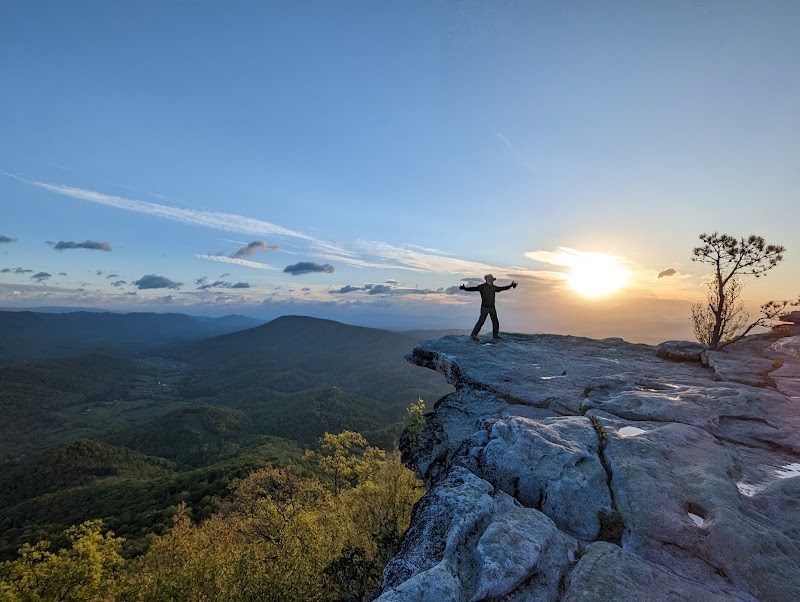
Trail Running in Wissahickon Valley: Philly’s Urban Wild Beckons
Wissahickon Valley turns Philadelphia’s backyard into an urban wild perfect for trail running. With rugged terrain, sweeping creek views, and forested paths, it delivers a blend of challenge and natural beauty just minutes from the city’s core.
Stay Hydrated
Carry at least one liter of water—natural springs aren’t reliable, and water access is limited along trails.
Wear Trail-Specific Shoes
Sturdy shoes with good grip and ankle support protect against rocky, uneven terrain and reduce injury risk.
Start Early
Morning runs avoid crowds, reduce heat stress, and offer serene conditions as the forest wakes.
Watch Your Footing
Roots and rocks are common; keep your eyes on the trail, especially on descents.
Trail Running in Wissahickon Valley: Philly’s Urban Wild Beckons
Wissahickon Valley offers an unexpected burst of wilderness just minutes from downtown Philadelphia. Here, a network of trails carves through wooded slopes, rocky ridges, and alongside the fluid Wild Wissahickon Creek that dares you to keep pace. Trail running here isn’t about taming nature—it’s about moving alongside a landscape fiercely itself, where every turn delivers a challenge or a breath-catching moment.
The main loop spans roughly 7 miles with about 850 feet of elevation gain, a workout that balances steady climbs with sharp descents on mixed terrain. Expect dirt packed earth, occasional exposed roots, and jagged rock steps that test your agility and focus. The Valley’s canopy filters sunlight, dappling the paths with shifting shadows and keeping the air cool even in summer’s heat. Streams that whisper across stones and the craggy creek bed push runners forward, a natural rhythm syncing with your stride.
Starting from Valley Green, a popular access point with parking and a bike repair station, you can hit the Forbidden Drive—a wide, gravel road perfect for good pace—before branching off onto narrower singletrack trails like the Blue Trail or the challenging West Tract. These smaller paths plunge steeply, demanding surefootedness and a respectful eye on footing.
Hydration is non-negotiable; water fountains are limited, so carry at least 1 liter. Trail shoes with solid grip and ankle support will save you from slips and help absorb impacts on unpredictable rock sections. Early morning runs offer the best conditions—fewer crowds, cooler temperatures, and the valley waking up in mist and light.
Night runs are discouraged given the steep descents and natural obstacles but daytime offers a constantly engaging terrain that sharpens your senses. Wildlife—especially white-tailed deer and red squirrels—occasionally dart through the undergrowth, elusive companions to your urban escape.
Whether you’re charting a moderate run for training or exploring for the first time, Wissahickon Valley challenges you to respect the land while discovering a patch of wild so close to the city. It’s a practical adventure—a place to hone your pace, test your focus, and listen to the creek as it carves its path relentlessly forward.
Nearby Trips
All Adventures
Boat Charters
Water Activities
Adventures near Philadelphia, Pennsylvania
Discover the unique and memorable adventures that make Philadelphia, Pennsylvania special.
Frequently Asked Questions
Are the Wissahickon trails suitable for beginner trail runners?
The main loop has moderate elevation and technical sections, so beginners with some running experience can manage it if cautious and prepared. Starting on the wider Forbidden Drive can ease the adjustment to uneven surfaces.
Is parking available at Wissahickon Valley trailheads?
Yes, several access points like Valley Green and Northwestern Avenue have parking lots, though they can fill early on weekends and holidays. Arriving early is advisable.
Can I run year-round in Wissahickon Valley?
Yes, but winter runs require extra caution due to ice and mud, and summer runs may be hot and buggy. Spring and fall offer the best balance of conditions.
Are dogs allowed on trail runs here?
Dogs are welcome on-leash. Trail runners should be mindful of others and wildlife, especially during nesting or breeding seasons.
Are there restrooms or water fountains on the trails?
There are limited restrooms near parking areas but none along the trails. Water access is scarce, so bring your own supply.
What wildlife might I encounter while running?
You'll often see or hear white-tailed deer, red squirrels, various songbirds, and occasionally hawks. The creek supports amphibians but watch your step to avoid disturbing habitat.
Recommended Gear
Trail Running Shoes
Grippy soles and ankle support for rugged, rocky paths.
Hydration Pack or Water Bottle
Necessary to stay hydrated due to limited water availability on trails.
Lightweight Layered Clothing
Adjust for shifting temperatures and wick sweat efficiently.
Headlamp
Handy for early mornings or late afternoons with shorter daylight.
Local Insights
Hidden Gems
- "Lovers' Leap viewpoint—a small cliff offering sweeping views of the creek below."
- "The hermit’s cave ruins—subtle stone remains tucked off the main trail."
Wildlife
- "White-tailed deer timidly crossing trails near dawn or dusk."
- "Red squirrels dashing among the oaks and hickories."
History
"Wissahickon Valley has long served as a rural refuge since the 19th century, protected as part of Philadelphia’s Fairmount Park system, preserving Colonial-era mills and early conservation efforts."
